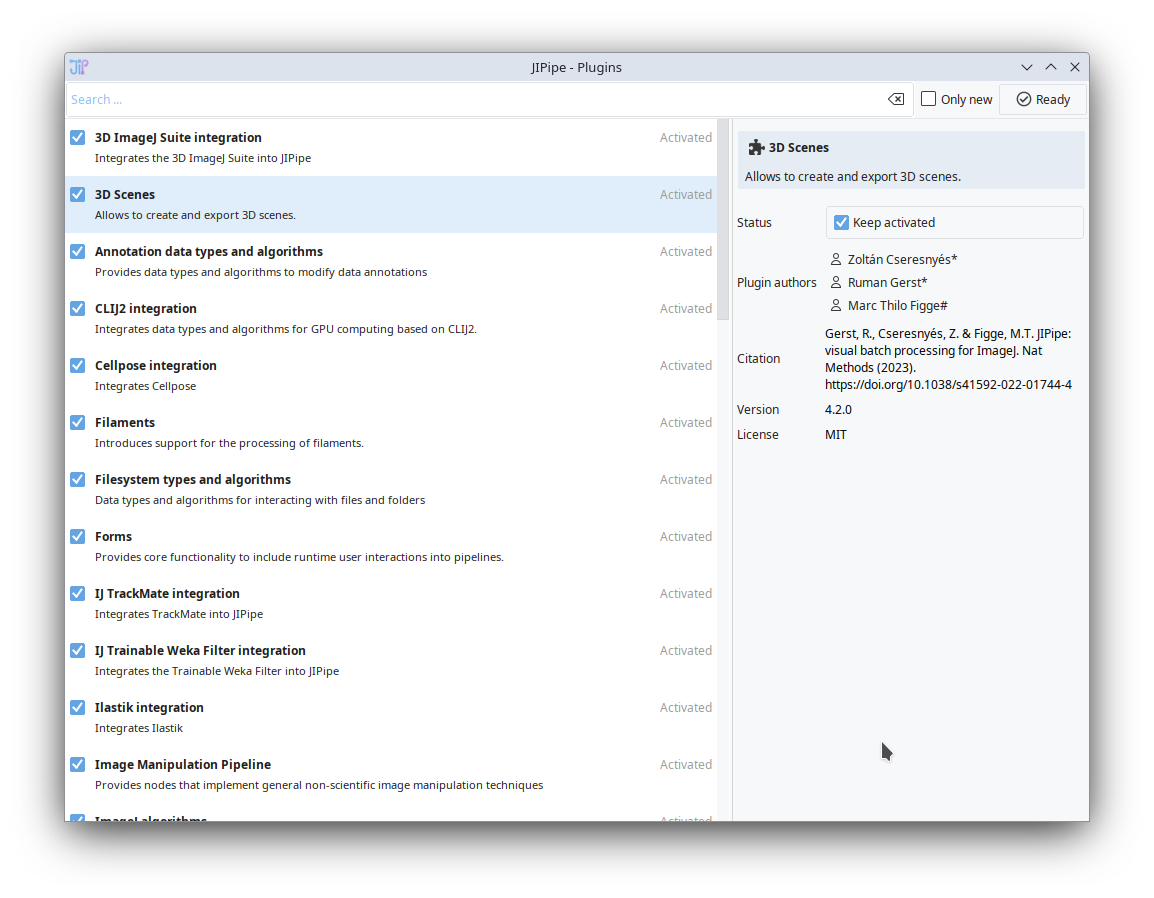Plugins and artifacts
Similar to ImageJ, JIPipe is modular and can be extended with a variety of functions. Plugins add new nodes, data types, and more features. When you install JIPipe, it ships with all plugins provided by us. All plugins are enabled and work as-is. No additional configuration is needed.
Artifacts are JIPipe's way to distribute third-party tools like Ilastik, Cellpose, Python, or R. We uploaded these tools to a centralized repository, so users do not have to download and install them manually.
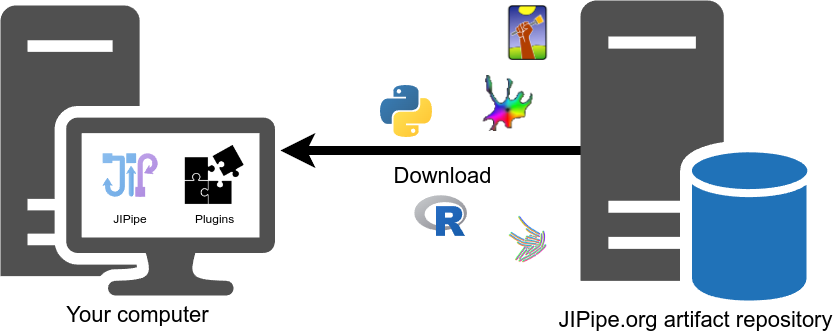
Managing artifacts
JIPipe auto-selects artifacts based on a variety of criteria that include your operating system, preferred acceleration methods, and supported CUDA version. The version that was found is then automatically written into newly created projects, so JIPipe can restore the exact (or best fitting approximation) artifacts on other computers.
To review/configure the artifacts utilized in your project, navigate to and browse through the entries in the category.
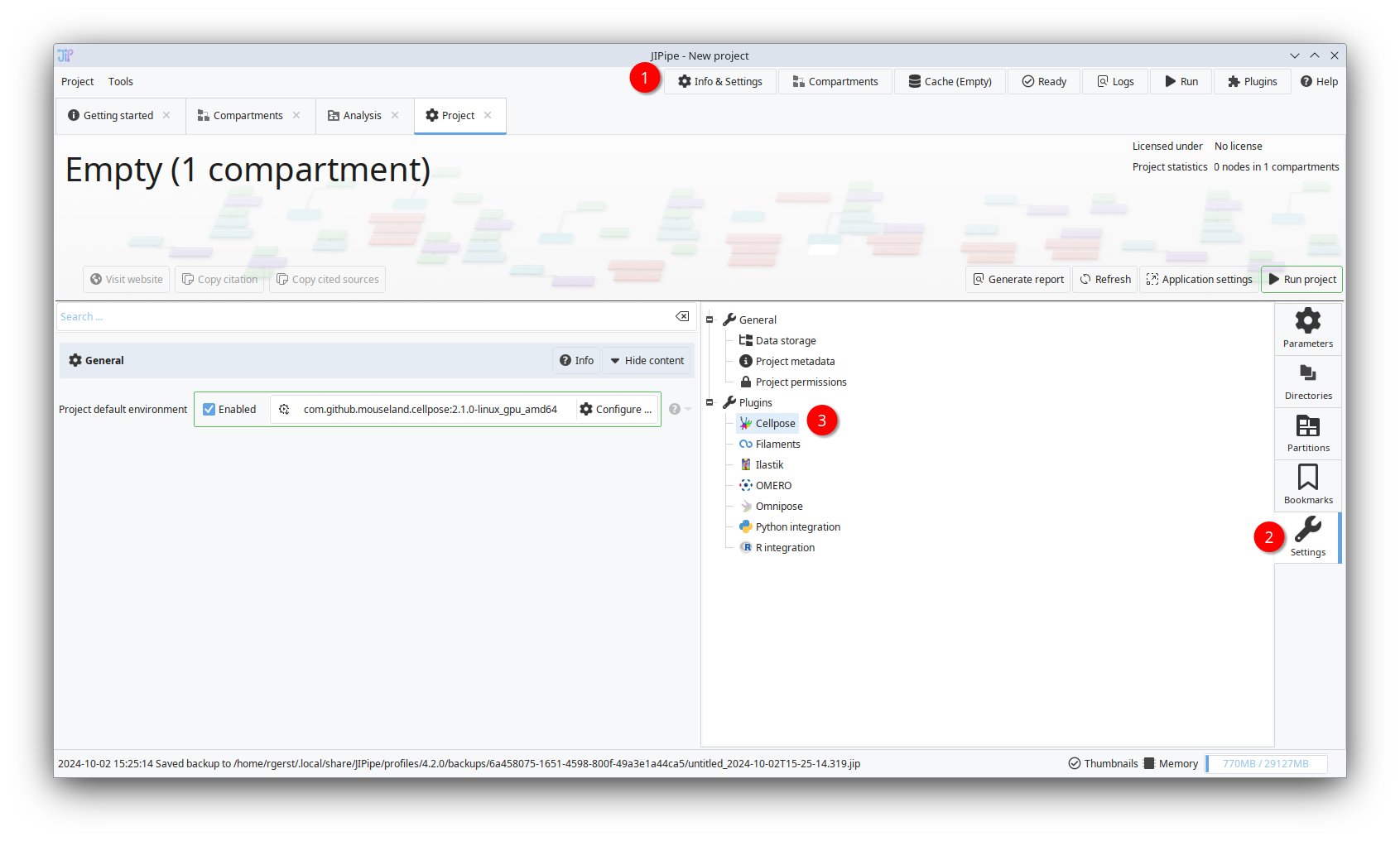
Clicking the Configure ... button reveals a variety of options, including the manual setup of external dependencies.
Since JIPipe 5.0.0 the project overview will also make automated ⭐ suggestions regarding artifacts, including upgrading to GPU variants or using versions with bugfixes.
Newer JIPipe versions also provide a panel in the status bar that allows to quickly configure artifacts or resolve issues.
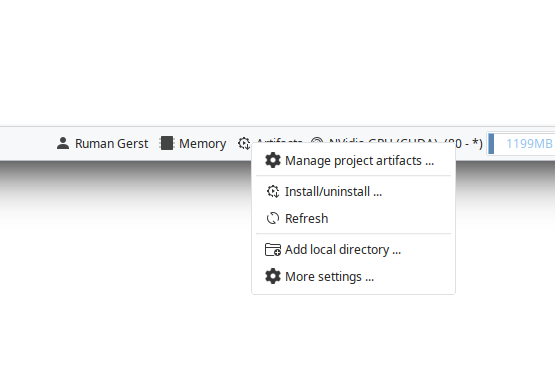
Here you can also include local artifacts repositories if no or slow internet connection is available.
Offline artifacts
JIPipe since version 5.0.0 supports artifact repositories stored on the local hard drive. This is useful for cases where no or only slow internet is available.
To set up a local artifact repository, first download the appropriate artifact package from our website. Extract the package (starting with the .001 file) using 7-zip/NanaZip/PeaZip/WinRAR.
In JIPipe click the Artifacts button in the status bar and select . In the file chooser select the root directory of the local repository (the one that contains the README file). JIPipe then will automatically also query the local repository.
Managing plugins
The plugin manager can be found by navigating to (JIPipe 4.1.0 or older) or (since JIPipe 4.2.0).
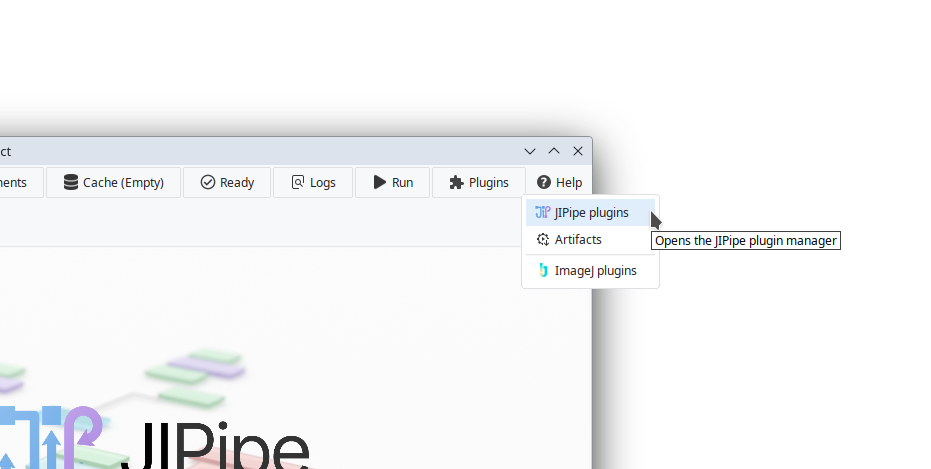
In the window you can see a list of all available JIPipe plugins with the status. Select an item in the list to display more information, including the authors and license. Here you can also enable or disable plugins.
After you made changes, you will be prompted to restart JIPipe.
